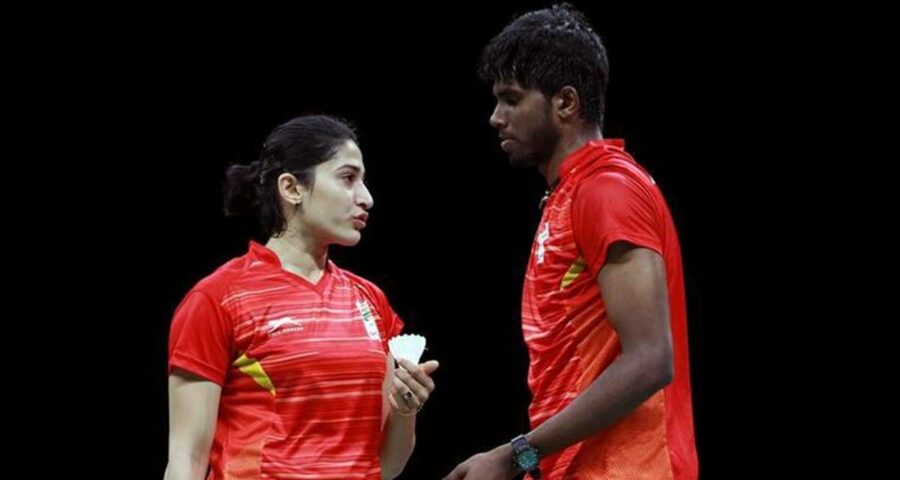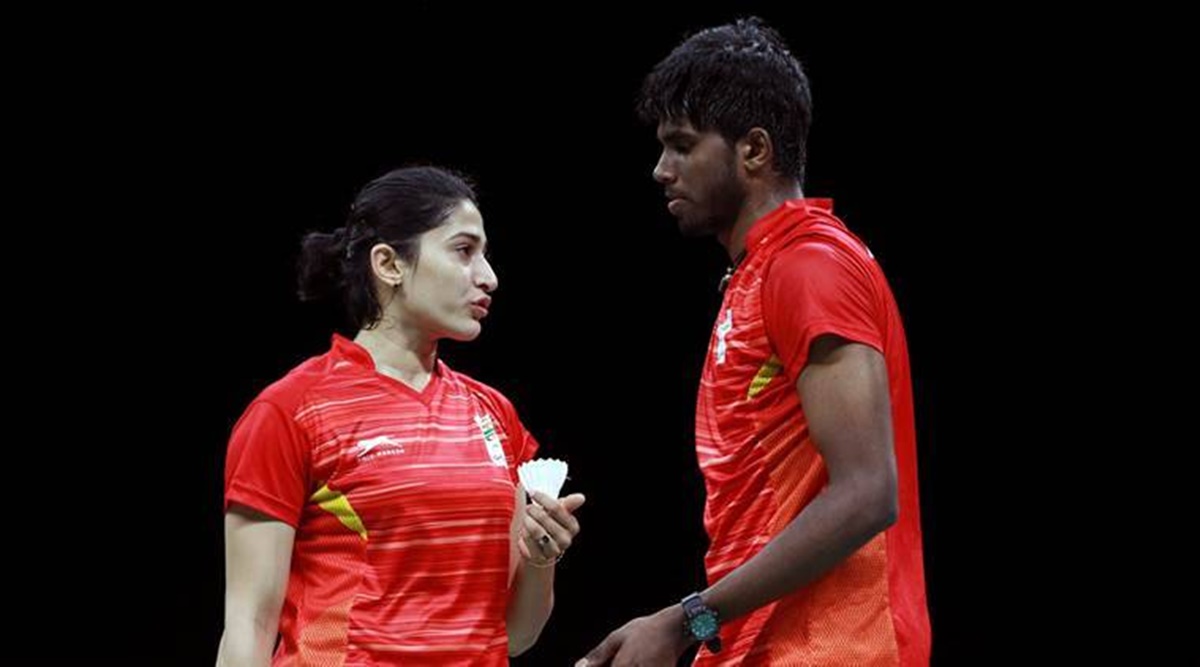Nothing slyly microscopic, nor towering like her Indonesian opponent, could stop India's top mixed doubles pairing of Ashwini and Satwiksairaj Rankireddy from scalping World No.8 Hafiz Fazal and Gloria Emanuelle Widjaja at the Thailand Super 1000.
Just how much the coronavirus pandemic lurks in the shadows and can stop an athlete from doing the one thing she loves best — competing — became apparent to Ashwini Ponappa the moment she stepped onto the Impact Arena court.
Nothing slyly microscopic, nor towering like her Indonesian opponent, could stop India’s top mixed doubles pairing of Ashwini and Satwiksairaj Rankireddy from scalping World No.8 Hafiz Fazal and Gloria Emanuelle Widjaja at the Thailand Super 1000. The duo won 21-11, 27-29, 21-16, amidst an almighty Covid-19 commotion engulfing the pairing’s return to court.
Ten months have lapsed fleeing the invisible virus, with the infection catching up with some – including both her playing partners in doubles. The shadow would stalk her again just when she was about to resume playing a competitive game once again: the Indian squad feared being stopped from playing after two positives put them in the high risk category.
“With all that was going on, it was a bit distracting as it happened just as we were getting ready to get on court. I remember at that moment being very happy that we’re playing a match and not asked to withdraw. Was grateful to get to play,” she said.
It was in the 72 minutes after the match started that Ashwini would rediscover the sheer joy and privilege of being able to compete at the highest level – something she believed all top players start taking for granted. Both her and Satwik, dripping perspiration and pushed to the limits, would continue grinning throughout, almost in disbelief of returning to competition.
“Felt great to be back on court competing. I’ve had months of training and zero competition so I was pretty eager to play a match. Though there weren’t any tournaments the past couple of months, training has been in full swing, and I was happy to put to use what I’ve been working on,” she would say.
The sheer energy and conviction in pulling off their gameplans – nuanced smashes from Satwik and variations in angles from Ashwini – would unsettle the sixth seeds. It reflected in the opening set blitz 21-11, as the Indians came bolting out the barns, pouncing at playing each point as if it was their last, with the fear of being pulled out and denied the chance to play the next moment.
Errors slipped out with every shake of momentum as the tall Widjaja repeatedly tried to take control. Two match points were wasted and the Top 10 Indonesians would make good finally on their 7th set point to level at 29-27.
Satwik would remain tentative at the net, but he had enough range and variety in his half smashes and drops to find gaps on the court. Yet what fetched them points was summoned back at will, as the lockdown improvements were visible. “We both knew that we were doing quite a few things right, so the focus was to continue what we’re doing and stick to what was working,” Ashwini explained.
While sharpness of strokes might’ve wavered, there was an easy rotation to their movements which meant they were pulling off setpieces well.
A mid-set scoreline like 29-27 can dampen the will to fight, especially if you’ve been in striking range with a couple of match points. But not this time. Ashwini was all composure. “Third set, it was important for us to be patient and not rush into getting points. Glad we held onto our nerves and didn’t hurry up with trying to finish, that made a difference,” she said.
The Indians would press the pedal right away at the start of the decider. And guard their leads posessively to grab the win. Starved of playing — badminton tragically hurtling from one cancellation to next in 2020 — Ashwini had desperately missed doing exactly this. “Definitely missed competing. Though there are tons of restrictions and playing at a tournament is not like what it was before Covid, the feeling of being on court playing a match is awesome. There’s nothing that comes close to actually playing at a tournament. All the practice work can’t really emulate that feeling,” she said.
Source: Read Full Article


